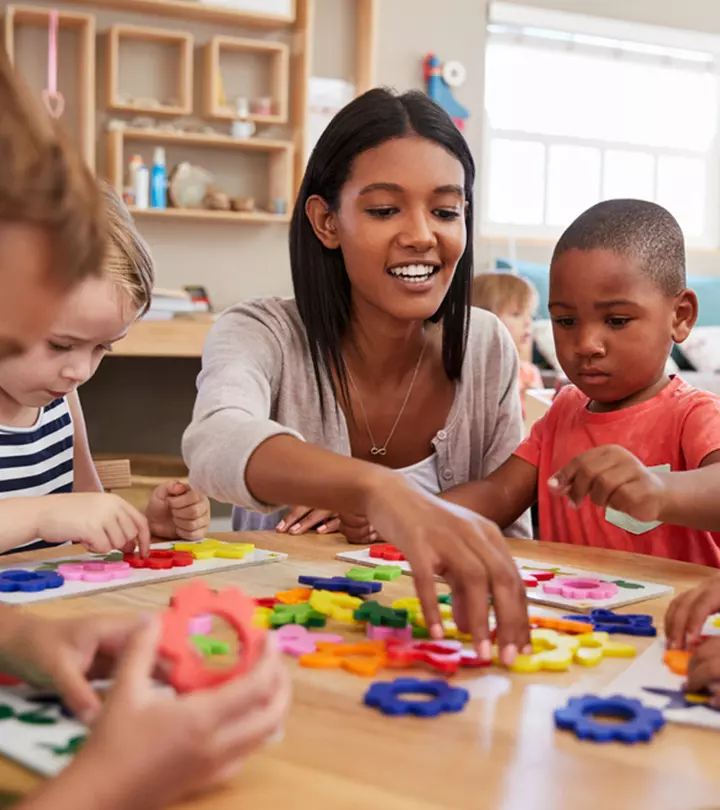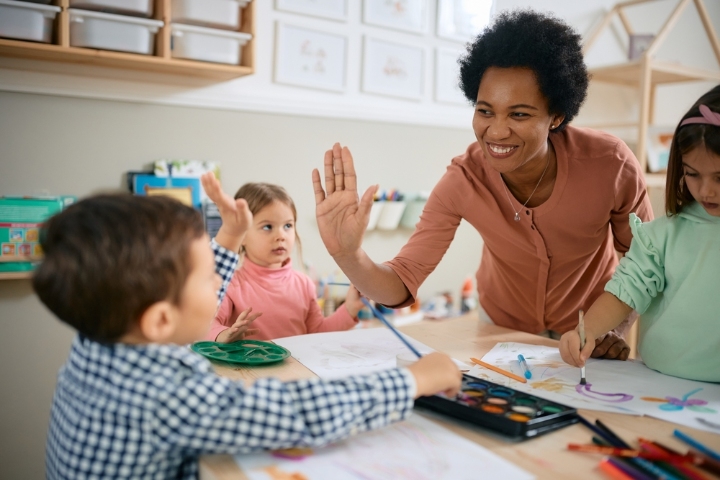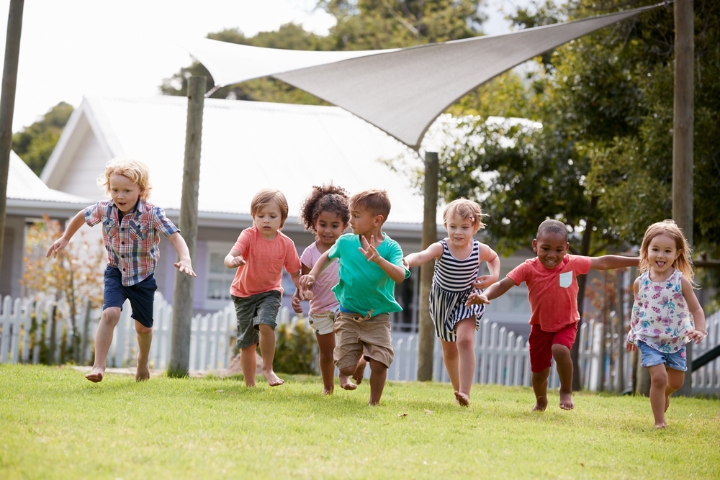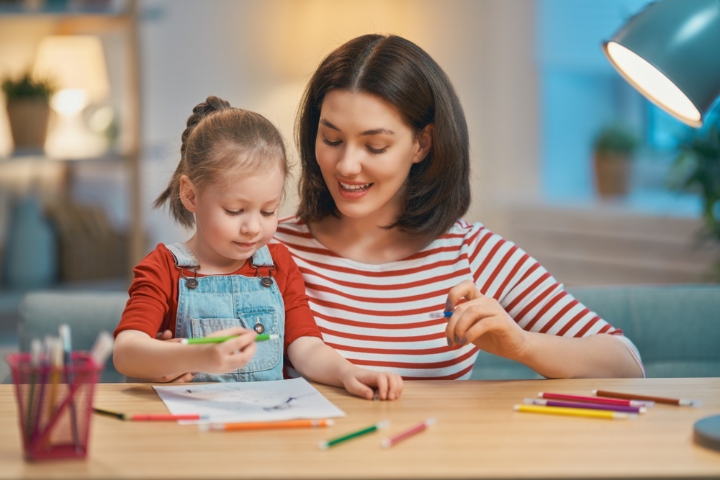
Image: Shutterstock
Stepping into the world of early childhood education, preschool is often the first place your child embarks on their educational journey. But have you ever wondered what goes into a preschool curriculum? Beyond playtime and naps, preschool curriculum is a well-thought-out blend of academics, motor skills development, social-emotional learning, and fostering independence. In this article, we’ll delve into the key components that make up a preschool curriculum, giving you insights into what your child experiences in those formative years. Read on!
1. Preschool Curriculum Fundamentals: Academics
Image: Shutterstock
a. The Alphabet Principle
Preschool is where the foundation of reading and writing begins. Children start recognizing and understanding the alphabet, which is the building block of language. The curriculum introduces letters through engaging activities like songs, games, and interactive stories. The goal is to make learning letters a fun adventure that sparks curiosity.
b. Math Concepts
Don’t be surprised if your preschooler starts counting everything in sight – this is the magic of the math component in their curriculum. Basic math concepts like counting, number recognition, and simple patterns are introduced through hands-on activities and playful exploration. These early encounters with math lay the groundwork for more complex mathematical thinking down the road.
c. Hands-On Science
Even at this tender age, preschoolers are budding scientists, eager to explore the world around them. Science in the preschool curriculum involves hands-on experiments and observations. From planting seeds to watching them grow, to mixing colors and understanding cause-and-effect relationships, these activities foster a natural curiosity about the world.
2. Preschool Curriculum Fundamentals: Gross And Fine Motor Skills
Image: Shutterstock
a. Preschoolers Are Usually Moving
If you’ve ever marveled at the energy level of a preschooler, you’re not alone! The curriculum capitalizes on this natural energy, incorporating activities that develop both gross and fine motor skills. Running, jumping, and climbing develop gross motor skills, while activities like cutting with safety scissors and coloring with crayons refine fine motor skills.
3. Preschool Curriculum Fundamentals: Social-Emotional Skills
Image: Shutterstock
a. Active Listening
Preschoolers are like sponges, soaking up information from their surroundings. Active listening is a cornerstone of effective communication, and the curriculum recognizes its significance. Through story sessions, engaging conversations, and interactive games, children learn the art of active listening. These activities encourage them to focus, comprehend, and respond appropriately, fostering a strong foundation for communication skills.
The benefits go beyond just understanding instructions. Active listening promotes empathy and connection with peers. When children truly listen to each other, they develop a deeper understanding of different perspectives and emotions. This ability to empathize and relate to others’ experiences is a vital social-emotional skill that will serve them well as they grow.
b. Memory And Information Retention
Ever been amazed at how your preschooler can remember the tiniest details about a favorite story? Preschoolers possess an incredible capacity for memory, and the curriculum taps into this potential. Memory games, rhymes, and storytelling activities challenge children to remember sequences, patterns, and information.
Recalling these details not only enhances memory retention but also plays a pivotal role in cognitive development. As children practice recalling information, they strengthen their memory muscles and develop sharper cognitive skills. This mental exercise also fosters critical thinking – an essential skill that helps them process information, analyze situations, and make informed decisions.
By nurturing memory and information retention at a young age, the curriculum equips preschoolers with valuable tools that will serve them throughout their educational journey and beyond.
4. Preschool Curriculum Fundamentals: Independence
Image: Shutterstock
Preschool plays a crucial role in fostering independence in young children. Here’s how the curriculum achieves this by helping children ease into the concept of separation:
a. Structured Transition
The curriculum begins with shorter sessions, allowing children to acclimate to the new environment and routine gradually. This incremental approach minimizes the shock of sudden separation, giving children the time they need to build comfort.
b. Group Activities
Engaging in group activities fosters a sense of belonging and community. Through collaborative games and projects, children realize they are part of a larger group that supports and interacts with them. This understanding boosts their confidence and eases the separation process.
c. Teacher Bonding
Preschool educators create nurturing bonds with each child. These connections provide a secure base for children to feel safe even when caregivers aren’t present. Knowing that their teachers are there to guide and care for them builds trust and confidence.
d. Predictable Routines
Consistent routines provide a sense of predictability and control. By knowing what comes next in their day, children feel more at ease. This predictability extends to transitions, including the separation from caregivers, making the process smoother.
The world of a preschool curriculum is a combination of diverse elements, all woven together to provide a holistic learning experience. From academics that lay the groundwork for future knowledge to developing crucial motor skills, fostering social-emotional growth, and nurturing a sense of independence, every facet of the curriculum contributes to shaping well-rounded individuals. As you watch your child excitedly share their day’s adventures, you’ll have a deeper appreciation for the thoughtfulness that goes into every aspect of their preschool journey.
















